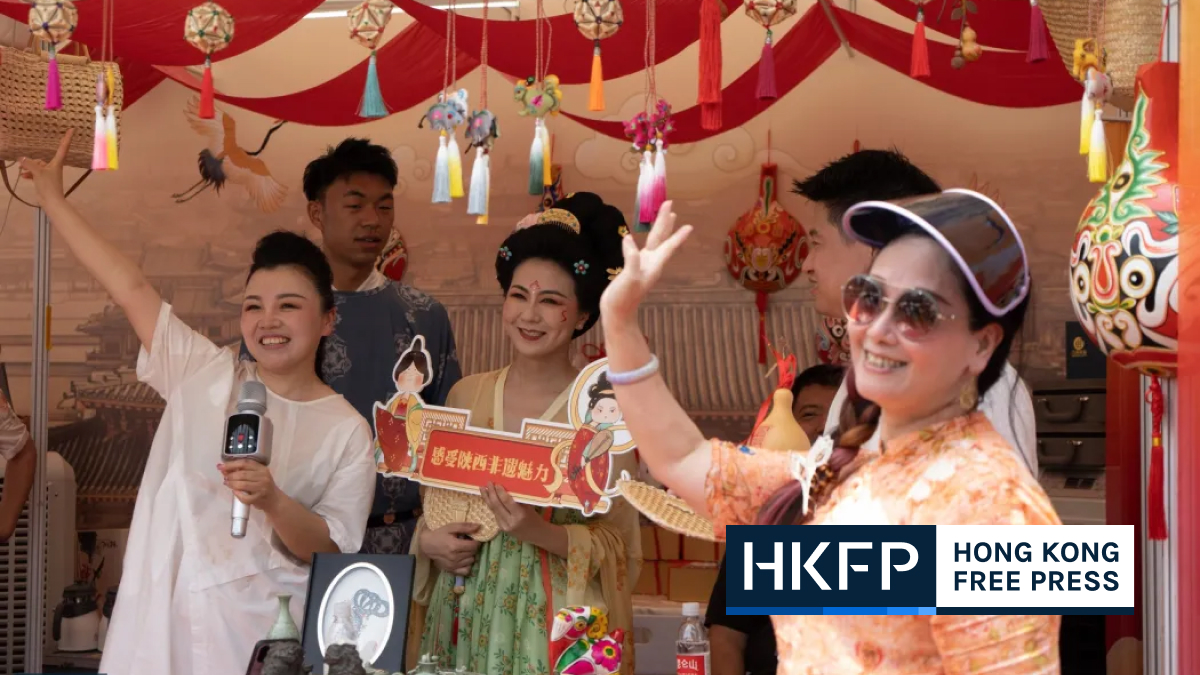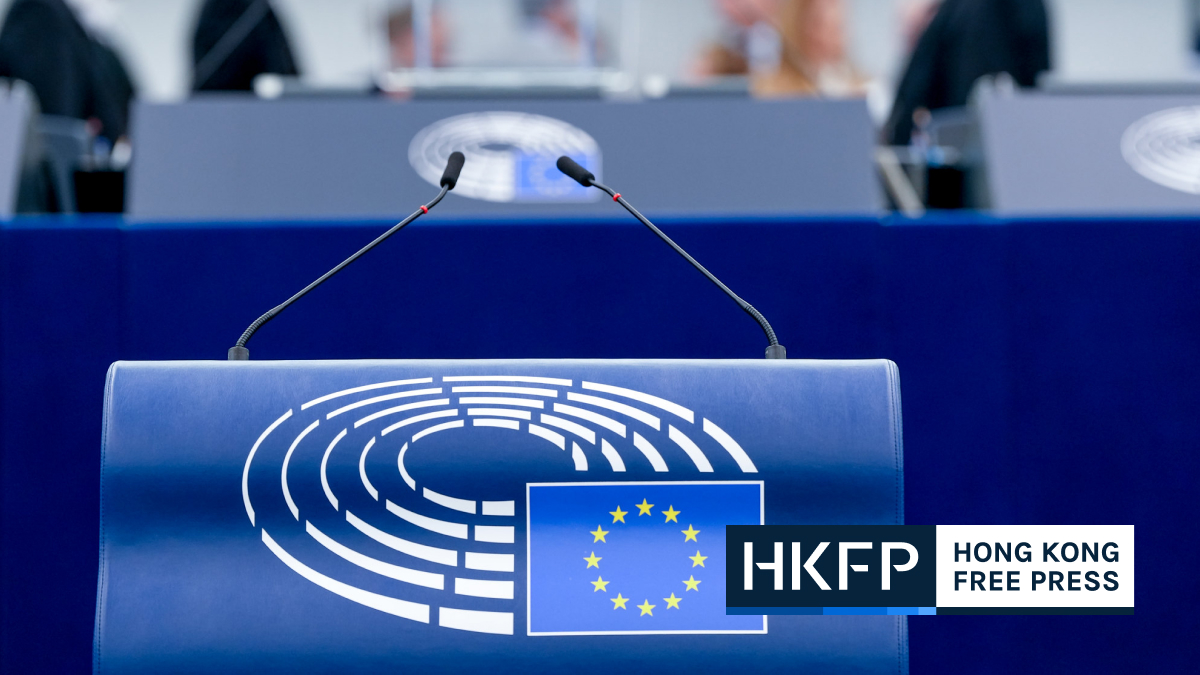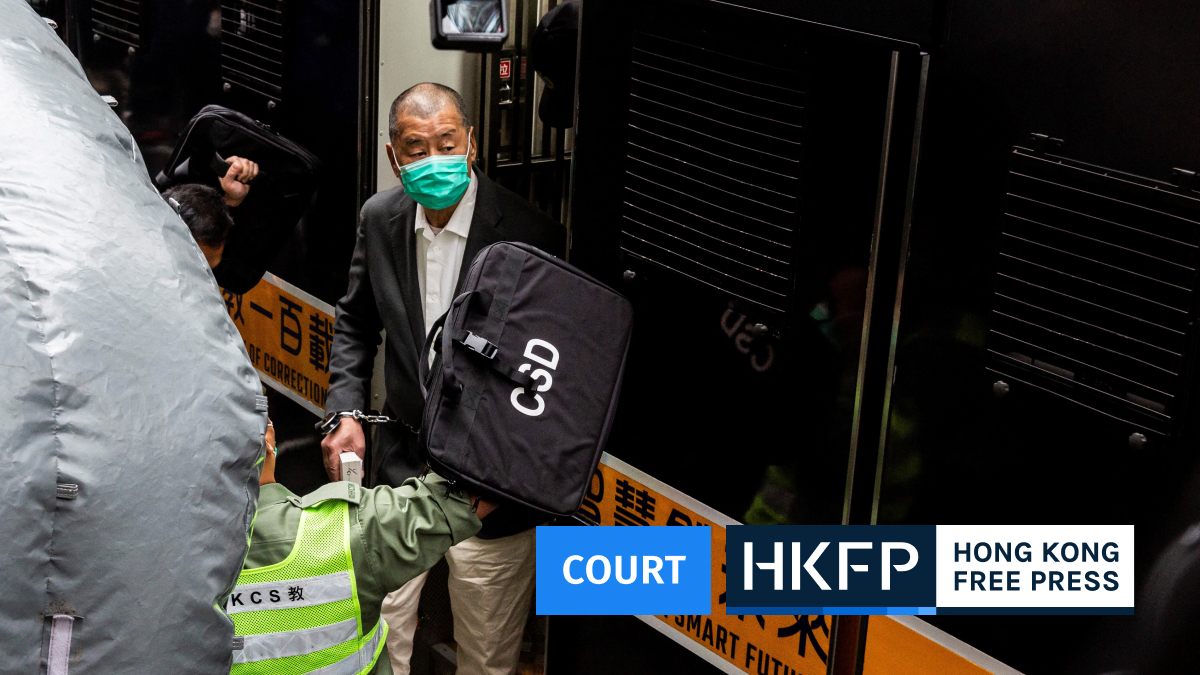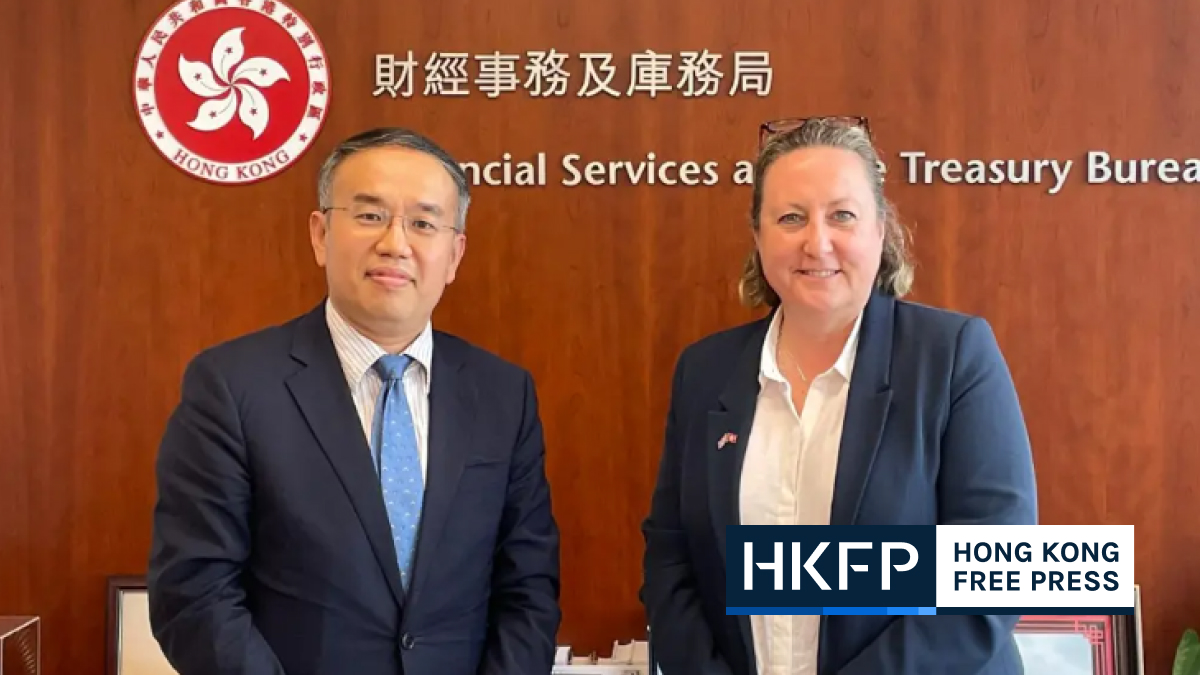By Emma Russell
Cantonese rapper JB’s “FUCKTHEPOPO!” became the rallying cry of the Hong Kong protests, chanted across the city by black-clad teenagers fighting for their freedom. But since the song’s release in June last year, China’s controversial new law banning undefined acts of secession, subversion, terrorism and collusion with foreign forces, has made singers think twice before speaking out.
Artists in Hong Kong’s emerging hip hop scene have felt the sting of their anti-establishment anthems, and share stories of cancelled concerts and harassment — both by nationalist Chinese online and by the police.

They’re hoping hip hop’s future isn’t as sterile as it is on the mainland, where it is used to amplify rather than challenge authority, yet only time will tell whether their words are twisted into a narrative they can’t control, by those offended by their lyrics.
“Just like everything in China, there is a red line that you do not cross and rap is no exception. In Hong Kong, people still value freedom of expression and political rap is still welcome,” says Matt Force, one of the city’s most distinctive acts, whose sound draws inspiration from the ‘90s East Coast hip hop that told stories of struggle.

But “everything that could nurture freedom of expression is in the process of sanitisation,” he says, from education — liberal studies is being cut from the curriculum — to news agencies where journalists are being arrested. “Popular culture will soon be the next target and I won’t be surprised if revolutionary operas reappear.”
There are already words that have been banned: (光復香港, 時代革命) “Liberate Hong Kong, Revolution of Our Time” and the song (願榮光歸香港) “Glory to Hong Kong” — which gained fame worldwide as the anthem of the city’s pro-democracy protest movement. “Once the gap is opened,” Force says, “it is hard to recover.”

He believes satirical raps will have a future under the national security law — just as it does in China, where satires about the brutalities of communism and the moral void of its market-driven transformation proliferate in the underground. But he hopes his own lyrics, imbued with symbolism and analogy that explore the greater problems in Hong Kong society, might survive as well.
In his track 20, he raps, “the cloud is painted all red now, and the pan-democracy camp isn’t all powerful anymore.” The words 範文 and 泛民 are homophones in Cantonese. 範文 translates to “model essay” and 泛民 is the abbreviation of 泛民主派, which means “pan-democracy camp.”
The lyrics express the rapper’s disenchantment with Hong Kong’s failed democracy where, “we fight for universal suffrage, but from day one, it is intentionally designed with flaws. It is a pseudo-parliament and rubber stamp [Legislative Council].”
For Young Hysan, a 23-year-old rapper who recently parted with the popular Cantonese rap group — The Low Mays — to go solo, it’s the speed with which people connect raps about police brutality with being anti-government that he finds dangerous.
“If you’re anti-government,” he says, “then you’re pro-independence, you’re pro-anarchy and that means you’re a criminal. In the past, people didn’t make that jump but now some people do.”
The beginnings of hip hop
In the United States, where the genre first emerged in the Bronx’s Carribean and African American communities in the 1970s, there was more nuance. Rap was an outlet for disenfranchised youth of marginalized backgrounds in low-income areas with songs reflecting the social, economic and political realities of their daily lives.
It tackled themes of race, religion, crime, violence and the struggles of ordinary people but “it wasn’t ‘such a black and white issue in that you’re either an anarchist or a conservative,” Hysan says.

Over the years, a cacophony of rap voices have been allowed to emerge in American popular culture, from Public Enemy, Tupac, Ice Cube and Kendrick Lamar, who advocated for black liberation, criticized the War on Drugs and the prison industrial complex as inherently racist, to Kanye West, who supported Donald Trump’s anti-establishment presidency.
Hip hop has always offended the censors. Rap group N.W.A gained notoriety in the ‘80s with explicit-laden “gangsta rap” anthems about the harsh realities faced by the inner-city youth in Los Angeles during the height of the crack epidemic. They highlighted classism and racism in America’s deeply disparate society in their song “Straight Outta Compton,” which was banned from MTV and “Fuck tha Police,” which was condemned by FBI Assistant Director Milt Ahlerich.

Local police departments took to faxing the song’s lyrics around the country, and off-duty police officers, who often doubled as concert security personnel, made it increasingly difficult for promoters to put on N.W.A concerts and cancelled their shows. “We just wanted to show the kids that you can’t say ‘fuck the police’ in Detroit,’’ one officer reportedly said at the time.
But Americans cherish their right to freedom of speech — the ability to criticise the government and speak their minds without fear of censorship or persecution — as enshrined in the First Amendment to the Constitution. Ultimately, censorship could only go as far as record companies agreeing to plaster a “parental advisory” sticker on albums deemed to include “strong language or depictions of violence, sex or substance abuse.”
China’s rap story
China’s rap’s story was bound to be different. Hip hop took off in the country in the 1990s thanks to the influx of dakou (black market tapes and CDs), which breathed new life into an underground music scene that had been dormant since the Tiananmen Square massacre in 1989.
Although it wasn’t until the popular reality TV show Rap of China was first shown in 2017 that hip hop reached the mainstream. PG One and Gai were crowned co-winners of season one — Gai mixing dialects from Chongqing and the southwest of Chin and singing about triads and violence.
But the government soon cracked down. PG One was forced to apolgise for using vulgar language in a song, and vilified online after having an affair with a married TV star. Meanwhile, critics complained that rap, born in the United States, could not be applied to the situation in China, where racism and social discrimination did not occur. China had no “gangsta culture” or hardships to complain about, they said.

In wake of the scandal, China’s media regulator pushed for more traditional Confusian values, issuing new moral guidelines in the form of the “Four Don’t.” They banned tattoos, hip-hop culture, non-mainstream and decadent culture from being used in programming.
The hip hop music that remained was stumped into two binary themes; pro-China or anti-China. Artists like Higher Brothers, CD Rev, Melo and Vava, another breakout star of the Rap of China, came out to praise the government and released diss tracks aimed at the Hong Kong protesters.
Echoing the Chinese authorities’ message, CD Rev released a track titled Hong Kong’s Fall that warned, “there are 1.4 billion Chinese standing firmly behind Hong Kong police. They will always protect Hong Kong without any hesitation. Air planes, tanks and the Chinese People’s Liberation Army all gathering in Shenzhen, waiting for the command to wipe out terrorists.”
CD Rev’s English-language song The Force of Red set the group’s nationalist agenda: “Fuck DPP, Fuck Tsai-Ing Wen, Y’all bitches ready for this shit? Taiwan ain’t a country! Bitch, at most a county, Please don’t even think about it (…). There’s only one China, HK, Taipei, They are my fellas.” With an accompanying video produced and directed by the Communist Youth League’s in-house production team.
Rap under Hong Kong’s security law
In Hong Kong, rappers felt the fallout of this souring relationship on social media, where the amount of outrage a line or two in a song can cause was exponentially exacerbated. However, Young Hysan noticed comments on his account take a turn for the worse after July 21, 2019, when 100 men in white t-shirts, with connections to triad members, stormed the Yuen Long MTR station and indiscriminately attacked civilians with rods.
Around that time the central government started politicising the Hong Kong protests inside China, harnessing hip hop to instill socialist values. They embarked on an aggressive propaganda campaign to present protesters as extreme, violent and foreign-sponsored, saturating social media pages with abuse, patriotic messages and memes.

For Hong Kong-born Filipino rapper JB, this has come in the form of death threats and police harassment. The song condemns the local police force for its brutality over the course of the protests — their liberal use of rubber bullets and tear gas — and refers to the police as ‘dogs,’ claiming some officers concealed their idenitifcation numbers while on duty.
With the words SMFB tattooed on his neck, a bull ring in his nose and heavy chains around his neck, JB is highly distinguishable, and has received verbal abuse from police officers, often in the form of racist remarks.
Online, people have told him to watch out: “if you get robbed, don’t call the police. Don’t ever ask for help from the police.” He had shows scheduled in Shenzhen, Guangzhou and Foshan that were cancelled because of threats to his safety. On WeChat forums people were saying, “I’ll kill you, I’ll shoot you,” if he came to perform.
“Right now, I don’t feel good to go back there to do my shows,” he says. “I’m not sure if it’s safe and I don’t feel comfortable.”

But if he had the chance again, he would still release the song. “I don’t care about politics,” JB says. “They can’t control everything, especially music, it’s art for us. We express whatever we want to. I’m not going to stop, I’m not going to try and fit their policies.”
He knows he won’t make as much money if he stands up to China, but he’s not doing this for money. KENI, one of the founders of independent record label Greytone, adds, “even if we gave up that region, we still have a lot of countries that we can work on. For us, it’s not really a problem. We just need to change our strategy for other countries.”
But Terrence who works on the label’s marketing and promotion is less optimistic: “The consequence of making that kind of music is too big for a lot of artists. It’s hard for artists to sacrifice their freedom, actual freedom not just creative freedom to make songs. I’m not sure the attention is worth it if they make those political songs.”
As Hong Kong becomes more like China, there’s a fear that people will stop speaking about politics entirely, which will narrow the kind of music that musicians produce. This will have negative effects for the creative scene as a whole.
Matt Force adds, “as long as my family and I are not threatened, I will carry on. But I believe sometimes the more you think about it, the more self-censorship there will be.”
Support HKFP | Policies & Ethics | Error/typo? | Contact Us | Newsletter | Transparency & Annual Report | Apps
Help safeguard press freedom & keep HKFP free for all readers by supporting our team



























